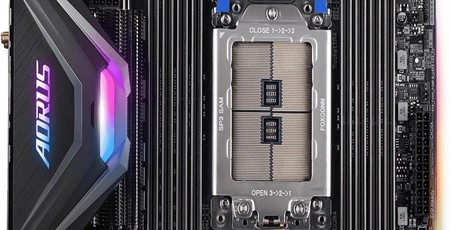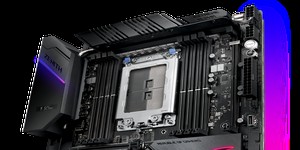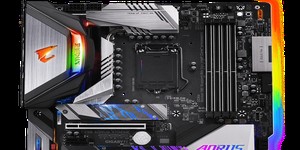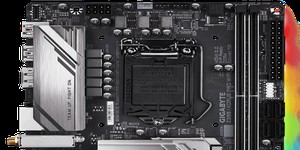Overclocking
Gigabyte's EFI is still somewhat dated next to MSI's and Asus' latest efforts, and while the fan control section is top notch with some of the most detailed and tweakable options out there, the rest feels like it needs sprucing up and reorganising. This is especially true for the overclocking section, as you still need to sift through several menus to apply a basic overclock, although more important with AMD builds are the Precision Boost Overdrive controls. Despite using the latest F4c BIOS for the board, the controls for this handy performance-boosting feature are still located in the Peripherals section instead of the main overclocking section, although Gigabyte is aware of the issue and is hopefully working on a fix. For now, you can see more on where to find the controls as well as other aspects of Gigabyte's EFI here.
We encountered some slightly strange results when overclocking the X399 Aorus Xtreme in that applying our usual 1.425V and aiming for 4.2GHz resulted in the PC rebooting the instant it was put under load. However, reigning in the CPU voltage to 1.375V not only solved things but also allowed us to hit 4.25GHz with our 16-core Threadripper 2950X - 50MHz higher than the MSI MEG X399 Creation. We also hit the same 4.1GHz using our 32-core Threadripper 2990WX as we did with the MSI board too.
Performance Analysis
Gigabyte suggested tweaking the Precision Boost Overdrive power limits to solve any mediocre stock speed results, but our usual testing involves completely stock speed numbers and a manual overclock, so we did both. Sure enough, the board was a tad behind the MSI MEG X399 Creation at stock speed in most tests, but then the latter also drew 43W more under load, suggesting MSI simply has more generous limits applied with its default settings in the EFI. Adding a PPT Limit of 350, TDC limit of 480, and EDC limit of 550 saw the Cinebench score with the Threadripper 2950X rise from 3,176, which is over 100 points short of the MSI board, to 3,461, but we'd probably expect the MSI board to see a performance boost doing this too. It was an identical situation with the Threadripper 2990WX, with the stock speed Cinebench score of 4,968 (again over 100 points short of the MSI board) rising to 5,383 once we'd tweaked the PBO limits.

As well as EasyTune and System Information Viewer software not working properly (the former would crash instantly and the latter refused to open three out of four tabs so we couldn't check the VRM temperatures), we suspect the audio driver might need some fine tuning too. We could only return noise and dynamic range levels of -101 dBA and 102 dBA respectively - we'd expect these results to be over the -110 dBA and 110 dBA marks with the high-end Realtek ALC1220 chip onboard, just as we saw with the MSI MEG X399 Creation. While it was a little behind the MSI board at stock speed and in audio performance, the slightly higher overclock resulted in bigger numbers elsewhere. The Gigabyte board was quicker in pretty much every test, although not by massive margins.
Conclusion
There are a couple of niggles here, and the biggest is the fact that we couldn't get Gigabyte's EasyTune or System Information Viewer software apps working. These usually work fine, so we can only assume they need an update to work properly with this board, and it's likely a similar situation with the audio driver. We will, of course, revisit things if there are updates and add to this review accordingly.
Adding tiny fans to VRMs has never been a popular option, and here, while they're not too intrusive, they can still ramp up to audible levels under high sustained loads. They did make a difference, but our inability to read the actual VRM temperature in Gigabyte's software meant we had to resort to other means to test the fans, so they may actually perform better or worse than our results in terms of actual VRM temperature rather than the temperature of the heatsinks. Finally, there's the EFI, which is in need of both major and minor updates.
Overall, Gigabyte has the makings of an excellent motherboard, and had we not run into issues with the software and audio, it would have been in line for an award. It offers plenty of next-gen features such as 10Gbit LAN and USB 3.1 ports and headers while still packing a punch with current tech too, making it a great basis for a monster PC. However, MSI's MEG X399 Creation is a little more polished overall and more deserving of your £450 as a result.

MSI MPG Velox 100R Chassis Review
October 14 2021 | 15:04









Want to comment? Please log in.